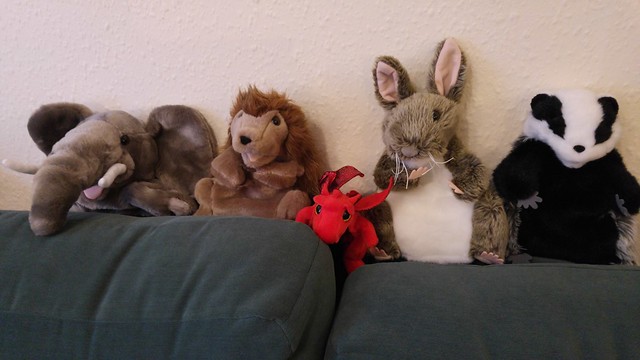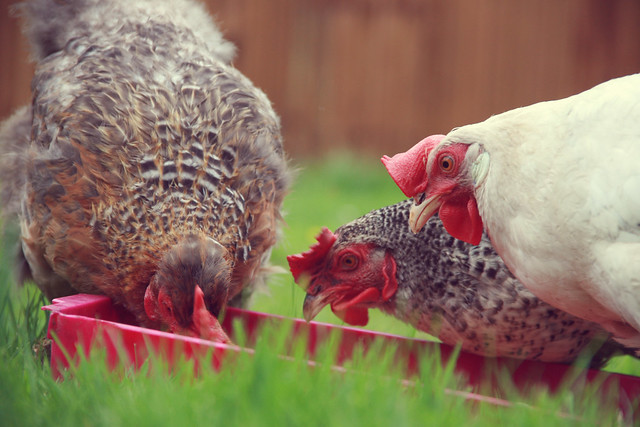Words for animal and related beasts in Celtic languages.

Words marked with a * are reconstructions.
| Proto-Celtic |
*mīlom = animal |
| Old Irish (Goídelc) |
míl = animal, louse, hare |
| Middle Irish (Gaoidhealg) |
míl, miol [mʲiːl] = animal, louse |
| Irish (Gaeilge) |
míol [mʲiːlˠ, mʲiːl] = animal, creature, insect, louse
míolach = lousy, verminous, measly, mean, full of animals
míolachán = verminous person or animal
míoladóir = louse-picker, scrounger
míoladóireacht = picking live, scrounging
míoleolaí = zoologist
míoleolaíocht = zoology
míolra = vermin |
| Scottish Gaelic (Gàidhlig) |
mial [miəl̪ˠ] = louse, tick, animal (archaic)
mialach [miəl̪ˠəx] = lousy, abounding in live, harmless
mialachd [miəl̪ˠəxg] = lousiness, harmlessness
mialtag [miəl̪ˠdag] = gnat
mial-bhalla = bedbug
mial-eòlas = = zoology |
| Manx (Gaelg) |
meeyl [miːl] = gnat, insect, louse, gnat
meeyllagh = insectlike, lousy, verminous
meeyllyn = vermin, flies
meeyllaghys = lousiness |
| Proto-Brythonic |
*mil [ˈmiːl] = animal |
| Middle Welsh (Kymraec) |
mil = animal, beast, creature |
| Welsh (Cymraeg) |
mil [miːl] = animal, beast, creature
milaidd = pertaining to animals, like an animal, bestial
mildraeth, mildraith = zoology, zoography, natural history
mildraethydd = zoologist, zoographer
milfa = menagerie
milfeddyg = verterinary, surgeon, farrier
milgi = greyhound
enfil = animal, beast, creature |
| Middle Cornish (Cernewec) |
mil = animal, beast
milen = brutish, brutal, cruel
milgy = hound, greyhound |
| Cornish (Kernewek) |
mil = animal
milonieth = zoology
milus = brutal
miluster = brutality
milva = zoo
milvedhek = vet, vetinary surgeon |
| Middle Breton |
mil = animal |
| Breton (Brezhoneg) |
mil [ˈmiːl] = animal
euzhvil = monster
morvil = whale |
Etymology: from the Proto-Indo-European *(s)meh₁l- (small animal) [source].
| Old Irish (Goídelc) |
anmandae, anmande = animal, creature |
| Middle Irish (Gaoidhealg) |
anmandae = living creature, animal, beast, head of cattle |
| Irish (Gaeilge) |
ainmhí [anʲəvʲiː]= animal, brute, monster
ainmhíoch = animal, brutish
ainmhíocht = animal nature, brutishness |
| Scottish Gaelic (Gàidhlig) |
ainmhidh [ɛnɛvɪ] = animal, beast of burden, heifer
ainmhidheach [ɛnɛvɪjəx] = brutish, beastly
ainmhidheachd [ɛnɛvɪjəxg] = brutality, brutishness |
Etymology: from the Old Irish ainim(m) (soul, life), from the Latin anima (soul, spirt, life; breath), or from the Proto-Celtic *anaman (soul, spirit), from Proto-Indo-European *h₂enh₁mos, from *h₂enh₁- (breathe), which is also the root of the English word animal [source].
| Middle Welsh (Kymraec) |
aniueileit, anyueyl, anieuil = animal, beast, creature
aniueileid, anifeilyeid, anifeiliaidd = animal-like, bestial |
| Welsh (Cymraeg) |
anifail [aˈnɪvai̯l / aˈniːvai̯l] = animal, beast, creature
anifeil(i)aidd = animal-like, bestial, brutish, savage, foul
anifeilig = animal(-like), bestial, brutal
anifeiliol = animal(-like), bestial, beastly, brutal
anifeilrwydd = carnality, sensuality |
| Middle Cornish (Cernewec) |
eneval = animal
enevales = female animal |
| Cornish (Kernewek) |
eneval = animal
eneval dov = pet |
| Middle Breton (Brezonec) |
aneual, anneual = animal |
| Breton (Brezhoneg) |
aneval [ãˈneːval] = animal |
Etymology: from the Latin animal (animal, living creature), from animālis (animate, living), from anima (soul, spirt, life; breath) [source].
| Proto-Celtic |
*betrixs = (?) |
| Old Irish (Goídelc) |
bethadach = animal |
| Middle Irish (Gaoidhealg) |
bethach, bethadach = animal, creature, beast |
| Irish (Gaeilge) |
beithíoch [bʲɛˈhiəx / ˈbʲɛhiəx / ˈbʲɛhiə(h)] = beast, (large) animal, brute; (large) specimen of creature, bovine animal; heifer, cow, cattle, horse |
| Scottish Gaelic (Gàidhlig) |
beathach [bɛhəx] = animal, beast, head of cattle, brute
beathachachadh [bɛhəxəɣ] = living, feeding, nourishing, sustaining, nourishment, nutrition
beathachail [bɛhəxal] = nutritious, nutritional
beathachair [bɛhəxɛrʲ] = animator
beathaich [bɛhɪç] = feed, nourish, support, sustain
beithir [behɪrʲ] = any wild or savage thing, beast; thunderbolt; lightning; strong gust of wind; warrior, hero |
| Manx (Gaelg) |
baagh = animal, pet, beast
beishtagh = beastly, bestial, brutish, monstrous, filthy |
Etymology: from the Middle Irish betha (life), from Old Irish bethu (life), from Proto-Celtic *biwotūts (life), from *biwos (alive), from Proto-Indo-European *gʷih₃wós (alive) [source].
Words from the same roots include words for food and life in Celtic languages, quick and zoo in English, and vida (life) in Spanish [source].
| Proto-Celtic |
*lutno- = (young) animal |
| Scottish Gaelic (Gàidhlig) |
loth [l̪ˠɔh] = fily, foal, colt
lothag [l̪ˠɔhag] = young colt / filly / foal
lothaire [l̪ˠɔhɪrʲə] = gangly / spindly person
lothach [l̪ˠɔhəx] = abounding in fillies / foals / colts |
| Manx (Gaelg) |
lhiy = colt |
| Middle Welsh (Kymraec) |
lluden, llydyn, llwdyn = (young) animal, beast
llwdyngar = involving (carnal) bestiality |
| Welsh (Cymraeg) |
llwdn = the young of an animal (colt, foal, kid, etc), animal, beast, young man, youth, oaf, dolt
llwdngar = involving (carnal) bestiality |
| Middle Cornish (Cernewec) |
lodn = young cow or sheep, young ox, bullock, steer, wether |
| Cornish (Kernewek) |
lodn = bullock, young ox
lodnek = bovine
lodnow = cattle |
| Middle Breton (Brezonec) |
loeznet, loezn, loznet = animal, beast
loeznedus = abounding in animals |
| Breton (Brezhoneg) |
loen [ˈlwẽːn] = animal, beast
loeniñ = to brutalise, labour, punish
loenedus = gamey
loenegezh = bestiality
loenek = animal, bestial, brutish |
Etymology: from PIE *polH- (animal young), from *peh₂w- (smallness). Words from the same roots include few, filly, foal, pony and puppy in English [source].
Sources: Wiktionary, Am Faclair Beag, Online Manx Dictionary, Teanglann.ie, eDIL – Electronic Dictionary of the Irish Language, In Dúil Bélrai English – Old Irish glossary, Geiriadur Prifysgol Cymru, Gerlyver Kernewek, Lexicon Cornu-britannicum: A Dictionary of the Ancient Celtic Language of Cornwall, Dictionaire Favereau, TermOfis, Le dictionnaire diachronique du breton, Etymological Dictionary Of Proto Celtic










